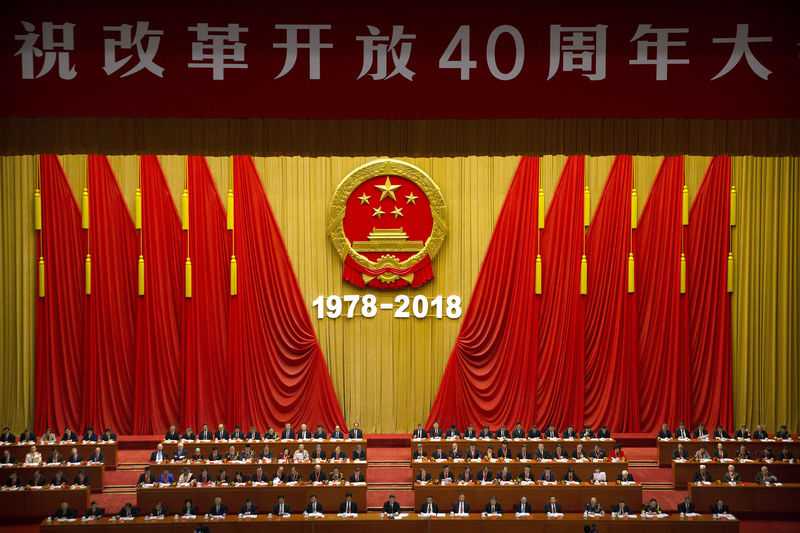Xi vows more reforms in China
20 December, 2018

Chinese President Xi Jinping called on Tuesday for the unswerving implementation of reforms on Beijing’s terms but offered no new specific measures in a closely watched speech marking 40 years of market liberalization.
In remarks lasting nearly an hour-and-a-half, Xi called for support for the state economy and development of the private sector, and said China would expand efforts at opening up and ensure the implementation of major reforms.
China’s substantial support of its sprawling state sector is a point of contention with the United States.
“We must, unswervingly, reinforce the development of the state economy while, unswervingly, encouraging, supporting and guiding the development of the non-state economy,” he said at Beijing’s Great Hall of the People.
Xi was speaking on the day China has marked as the 40th anniversary of the start of late leader Deng Xiaoping’s campaign of “reform and opening up,” which led to explosive industrial growth that made China’s economy the world’s second-largest.
Xi reaffirmed the ruling Communist Party’s leadership in all aspects of society and said reforms should be in line with the overall goal of improving the socialist system with Chinese characteristics.
“Opening brings progress while closure leads to backwardness,” Xi said.
“Every step of reform and opening up is not easy. In future, we will be inevitably faced with all sorts of risks and challenges, and even unimaginable tempestuous storms,” said Xi, stressing the role of the Communist Party.
Xi was speaking amid mounting pressure to accelerate reforms and improve market access for foreign companies as a trade war with the United States weighs on the economy.
His remarks failed to excite investors, with Chinese stock indexes down more than 1 percent, tracking broadly lower Asian shares.
“Despite promises of the importance of the speech, very little new was announced, particularly given its similarity to parts of Xi’s speech at the Politburo meeting a few days prior,” said Jonas Short, head of the Beijing office of brokerage Everbright Sun Hung Kai.
Short said attention would now be focused on the Central Economic Work Conference expected later this week for clues on policy direction.
The trade war has spurred some Chinese entrepreneurs, government advisers and think-tanks to call for faster reforms and the freeing up of a private sector stifled by state controls and struggling to gain access to credit.
Xi said China had to make its own decisions. “There is no textbook that can provide a golden rule, and there is no instructor who can boss around the Chinese people.”
Xi and U.S. President Donald Trump agreed early this month to a 90-day truce in the trade dispute, which halted the threatened escalation of punitive tariffs while the two sides negotiate.
In his speech, Xi enumerated the accomplishments of China’s development since it moved away from a planned economy, when basic goods were rationed and often scarce.
“Grain coupons, cloth coupons, meat coupons, fish coupons, oil coupons, tofu coupons, food ticket books, product coupons and other documents people once could not be without have now been consigned to the museum of history,” he said.
“The torments of hunger, lack of food and clothing, and the hardships which have plagued our people for thousands of years have generally gone and won’t come back.”
Numerous luminaries in attendance were cited for their contributions to economic reforms including the heads of online giants Alibaba, Tencent Holdings and Baidu and carmaker Geely Automobile Holdings, a nod to the role of the private sector.
TAG(s):
